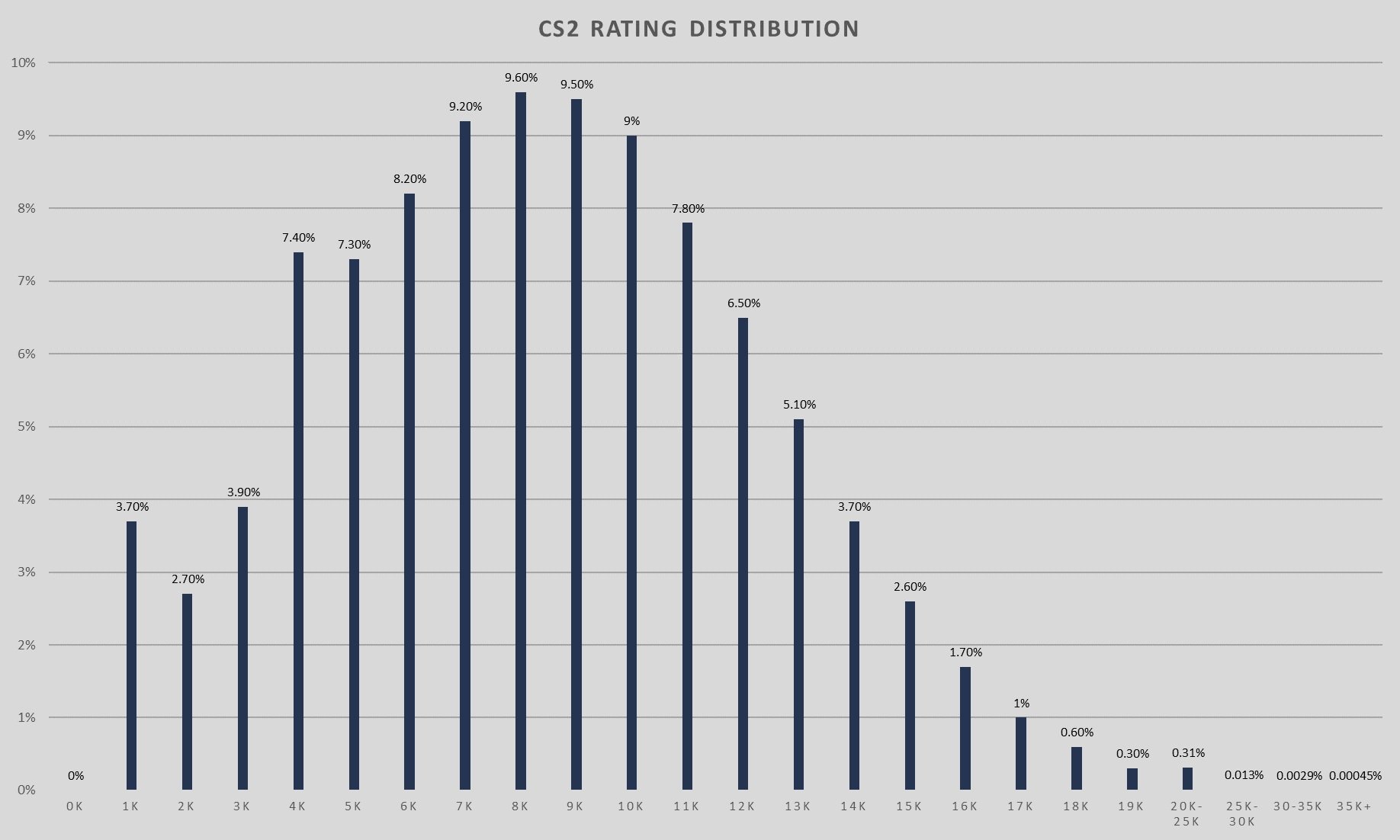BFN Lab: Insights and Innovations
Explore the latest trends and insights in technology, science, and innovation at BFN Lab.
CS2 Matchmaking Ranks: Climbing the Ladder with Style
Master CS2 matchmaking ranks and climb the ladder with style! Discover tips, strategies, and secrets to boost your gameplay today!
Understanding CS2 Matchmaking Ranks: How They Work and What They Mean
In Counter-Strike 2 (CS2), matchmaking ranks play a crucial role in determining the skill level of players and ensuring fair competition among participants. Ranks range from Silver to Global Elite, with each tier reflecting a player's performance and skill. Understanding these ranks is essential for players aiming to improve their gameplay and climb the competitive ladder. The ranking system takes into account various factors such as win-loss ratios, individual performance metrics, and match outcomes to assign players a rank that accurately reflects their abilities.
Each rank within the CS2 matchmaking system has its own significance and provides players with a sense of progression. For example, players starting at the Silver tier are typically new to the game, whereas those in the Gold or Platinum tiers have demonstrated a solid understanding of game mechanics and teamwork. As players gain experience and improve their skills, they can advance through the ranks, unlocking new opportunities for competitive play. This structured ranking system not only motivates players to enhance their skills but also creates an engaging environment where players can challenge themselves against others of similar ability.

Counter-Strike is a popular first-person shooter franchise that emphasizes teamwork and strategy in competitive gameplay. In its latest iteration, players are often looking for ways to optimize their experience, including cs2 port forwarding to improve connectivity and performance. The game continues to evolve, attracting a dedicated community of players worldwide.
Top Strategies for Climbing the CS2 Matchmaking Ladder
Climbing the CS2 matchmaking ladder requires not just skill but also effective strategies that can give you a competitive edge. Understanding game mechanics is crucial; be sure to familiarize yourself with weapon patterns, map layouts, and the economy system. Mastering essential gameplay techniques, such as spray control and crosshair placement, can greatly enhance your performance. Additionally, team communication is vital. Use voice chat or in-game signals to coordinate with your teammates, call out enemy positions, and share strategies. Remember, a well-coordinated team is often the key to victory.
Another important strategy is consistent practice. Set aside time each week to focus on specific skills, such as aiming, movement, or grenade throws. Utilize aim training software or practice maps to hone your shooting precision. In addition, watching professional players can provide valuable insights into advanced tactics and positioning. Make reviewing your gameplay a regular habit; recording your matches allows you to identify mistakes and areas for improvement. By combining these elements, you'll gradually climb the CS2 matchmaking ladder and elevate your overall gameplay experience.
Common Myths About CS2 Matchmaking Ranks Debunked
Counter-Strike 2 (CS2) matchmaking ranks have been the subject of many misconceptions since the game's release. One common myth is that players can influence their rank through win trading, where two players agree to purposely lose games for each other. However, the CS2 matchmaking system is designed to detect unusual patterns of play, and such behavior can lead to serious penalties, including rank demotion or even a ban from competitive play. Understanding that the ranking system is built to promote fair and competitive gaming is essential for any player looking to improve their skills and rank legitimately.
Another prevalent myth is that higher ranks equate to inherent skill or unbeatable prowess in the game. While it may seem that players in higher ranks are untouchable, this isn't always the case. Ranks are determined by a player's matchmaking performance over time, but factors such as team dynamics, communication, and individual circumstances can heavily influence game outcomes. Therefore, it's crucial to recognize that being placed in a higher rank does not always indicate that a player is free from mistakes or learning opportunities. Each player, regardless of rank, has room for improvement.